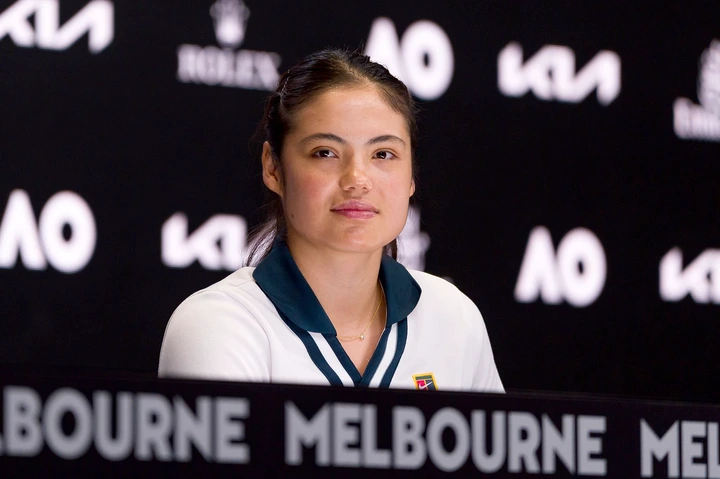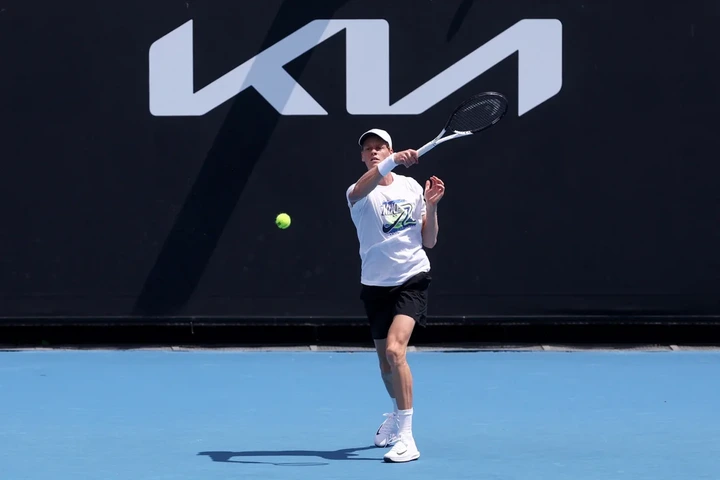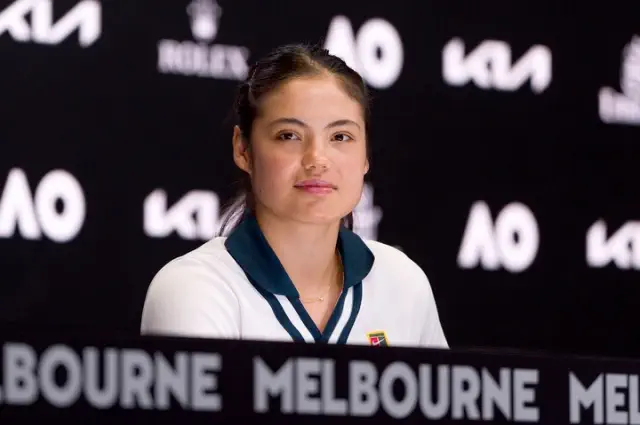
View pictures in App save up to 80% data.
CNN —
British tennis star Emma Raducanu says she turned down treatment for insect bites ahead of this year’s Australian Open over concerns about what she could be putting in her body.
The 22-year-old revealed to the media that she suffered severe bug bites while getting ready for the tournament, but chose to endure the discomfort without any medication, citing increased doping worries in the sport.
“I would say all of us are probably quite sensitive to what we take onboard, and what we use,” Raducanu said.
"Just yesterday, I was attacked by a swarm of ants and mosquitoes, and it was pretty severe. I think I'm allergic, because my bites became really inflamed and swollen."
“Someone offered me this natural antiseptic spray to help soothe the bites, but I was hesitant to use it. I just didn’t want to apply it.”
"I found myself sitting there with my swollen ankle and hand. I thought to myself, I’ll just endure this because I don’t want to take any chances."
It comes amid two high-profile doping cases which shook the world of tennis last year involving Jannik Sinner and Iga Świątek .
Currently ranked World No. 1, Sinner has managed to steer clear of any competition suspension after the International Tennis Integrity Agency (ITIA) declared in August that he was not to blame, despite testing positive for low levels of Clostebol, an anabolic steroid, from a sample taken on March 10.

View pictures in App save up to 80% data.
Sinner claimed that the positive test results were a result of "unintentional contamination of Clostebol" during a treatment session with his physiotherapist.
In September, the World Anti-Doping Agency (WADA) announced that it would be filing an appeal with the Court of Arbitration for Sport (CAS) following a ruling by an independent tribunal organized by the ITIA, which determined that Sinner was not at fault.
Prior to this year's Australian Open, Sinner informed reporters that he was uncertain about when the court would hear the appeal.
Meanwhile, former women’s world No. 1 Świątek accepted a one-month suspension last year after testing positive for the banned substance trimetazidine, which can boost endurance.
Świątek, a five-time Grand Slam champion, expressed her initial disbelief at the outcomes, stating she was “shocked.” In an interview with reporters this week, she described that time as the “most challenging period of my life.”
Tests revealed that the melatonin she had been using to aid her sleep, as stated by Świątek, was tainted.
As Świątek and Sinner continue to deal with the aftermath of their situations, Raducanu mentioned that she feels she has become more sensitive than she was in the past.
"Clearly, it's something we're all thinking about, but we're all facing the same challenges. What matters is how we handle the things we can control," she continued. "If something unexpected occurs, it will be quite difficult to address."
Raducanu is scheduled to compete against Russian player Ekaterina Alexandrova on Monday during the opening round of this year's Australian Open.










